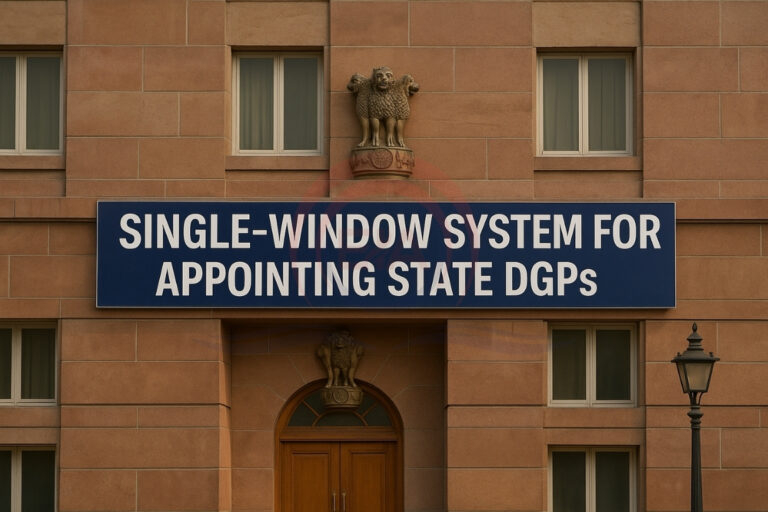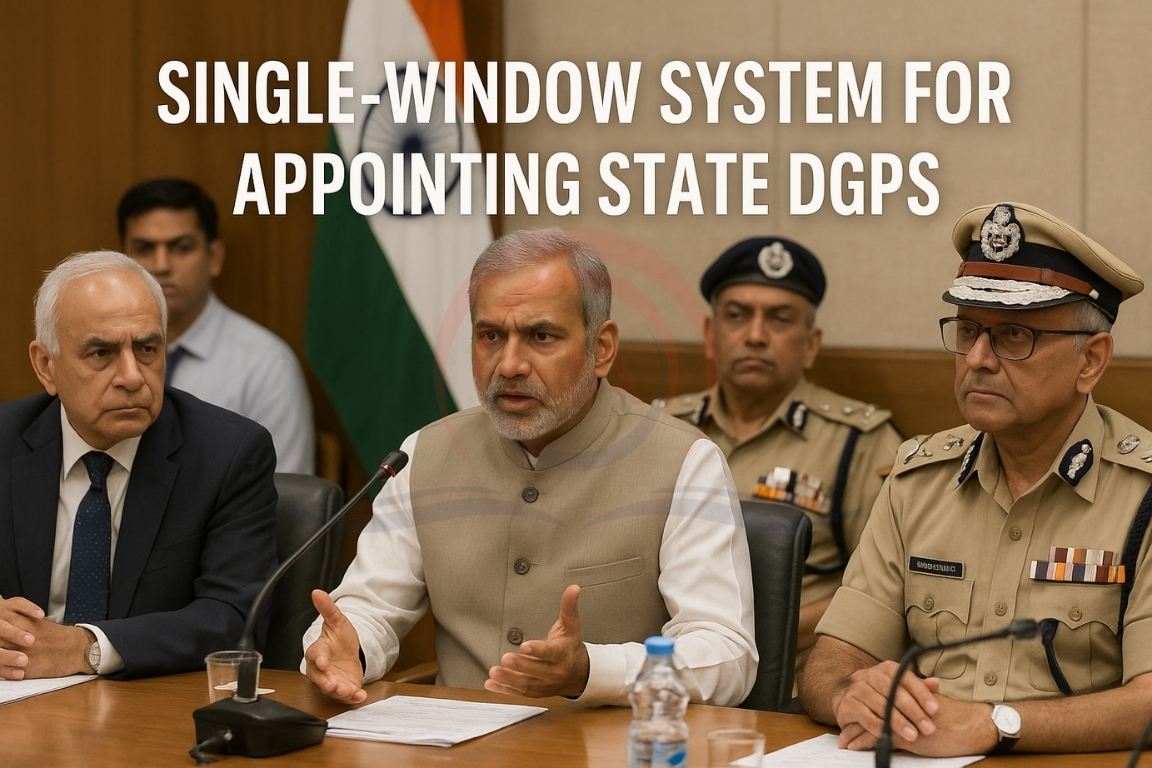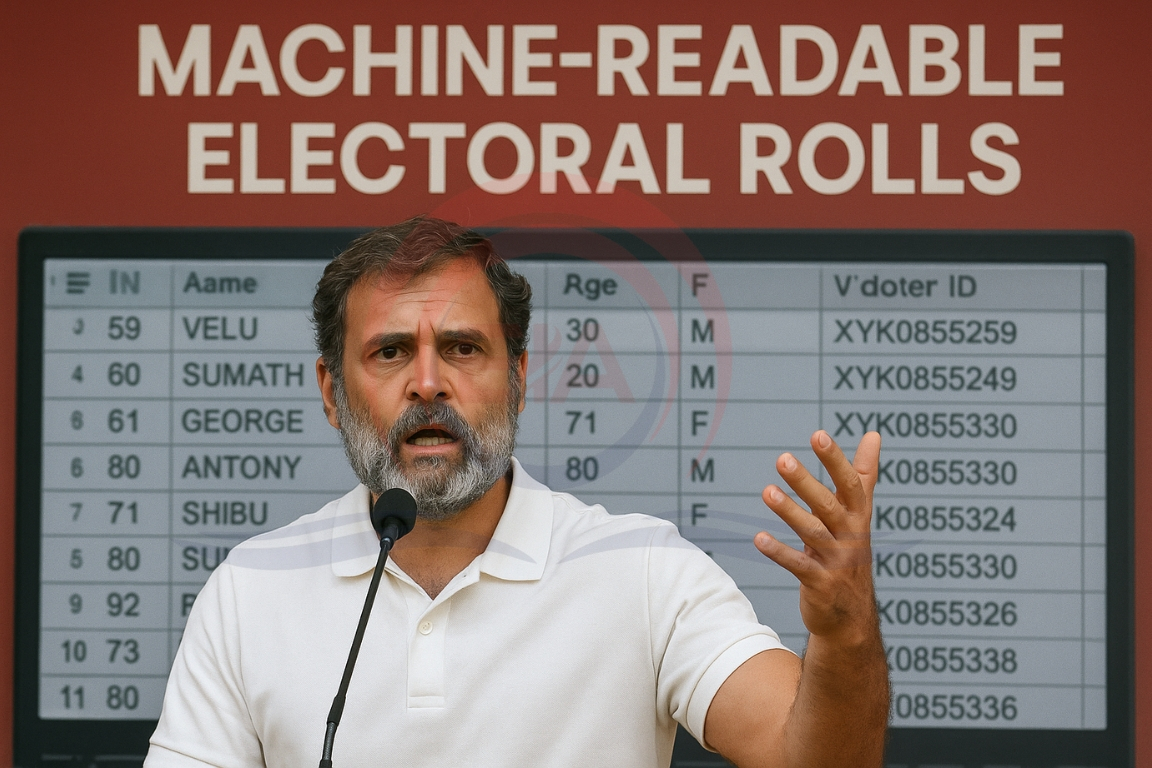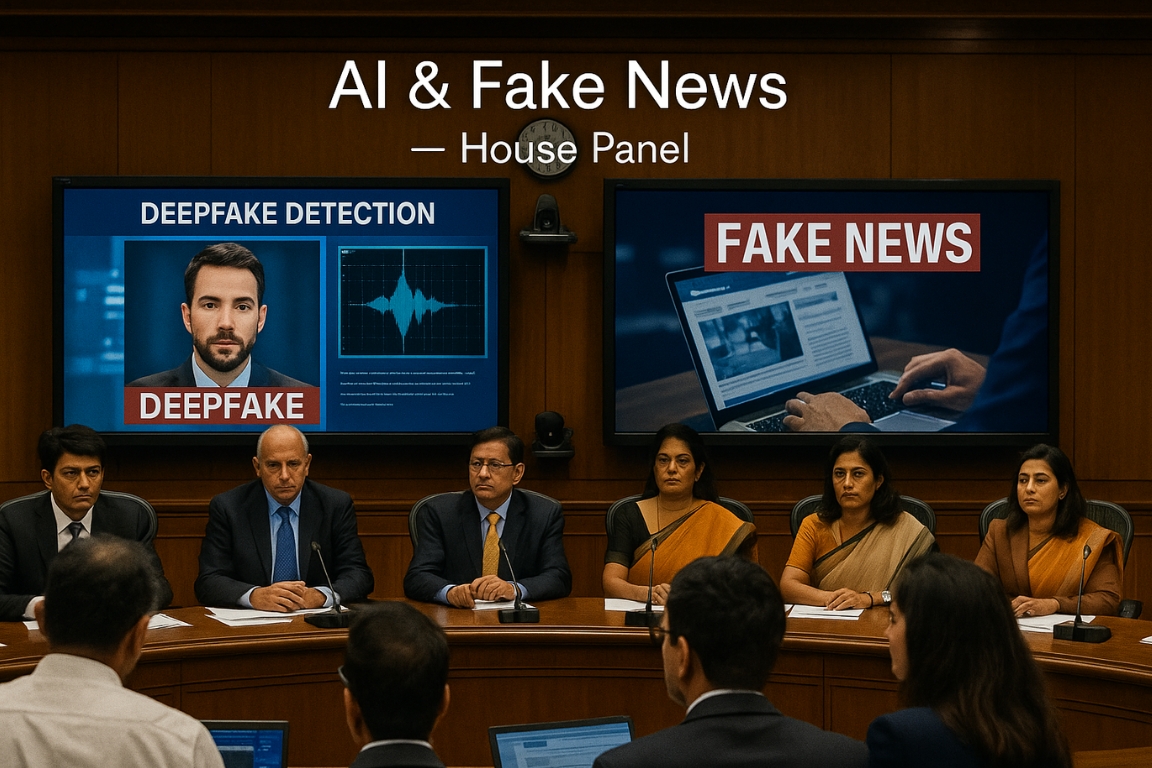The Union Government has launched a Single-Window System (April 22, 2025) for appointing State Directors General of Police (DGPs) to standardize the selection process and ensure compliance with the Supreme Court’s Prakash Singh (2006) directives on police reforms.
Background and Objective
- Many states failed to follow SC and MHA guidelines for appointing DGPs.
- Objective: Ensure transparent, uniform, and timely empanelment of DGP/HoPF (Head of Police Force) candidates with minimum political interference.
Features of the Single-Window System
- Streamlined Process: A detailed checklist and standard formats for state proposals. Secretary-rank officer to certify eligibility and minimum tenure of officers before submission to UPSC.
- UPSC Empanelment Committee
- Headed by UPSC Chairperson.
- Members: Union Home Secretary, State Chief Secretary, State DGP, and a senior central police officer.
- Eligibility Conditions
- Officer must have at least 6 months of service left from the date of vacancy.
- Proposal to UPSC at least 3 months before vacancy.

Police Administration Context
- State Police is a State Subject (Seventh Schedule).
- Dual Control at District Level: District Magistrate supervises SP; replaced by Commissionerate System in cities for faster decisions.
- Recruitment:
- Constable to DSP: By state government.
- IPS (Assistant SP onwards): By UPSC under All India Services.
Prakash Singh Case (2006) , SC Directives
- State Security Commission to prevent political misuse of police.
- Police Establishment Board for postings and promotions.
- Police Complaints Authority to probe misconduct.
- Minimum 2-year tenure for DGPs and key officers.
- DGP selection from 3 senior-most UPSC-empanelled officers.
- Separation of law & order from investigation for efficiency.
- National Security Commission for central force chiefs.
Need for Reforms
- Colonial legacy of the 1861 Police Act.
- Political interference and frequent transfers reduce accountability.
- Custodial deaths & poor public trust necessitate ethical training.
- Patchy implementation of SC and expert body recommendations.
Conclusion
The Single-Window System is a step toward depoliticising police leadership and ensuring professional, accountable policing, but effective state-level compliance is critical for true police reforms and good governance.





